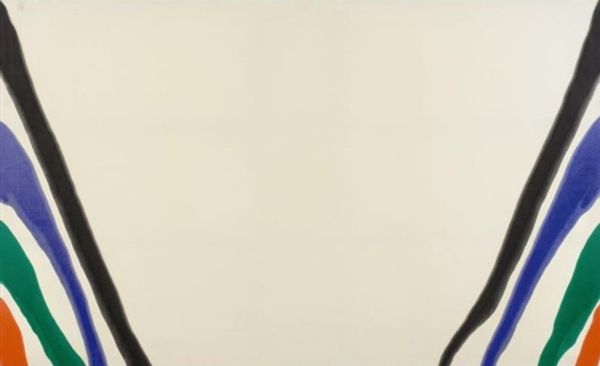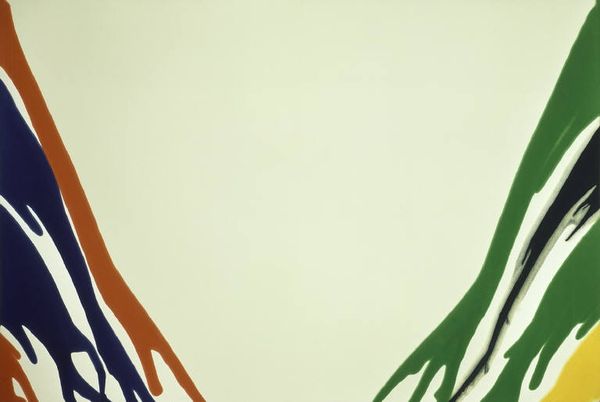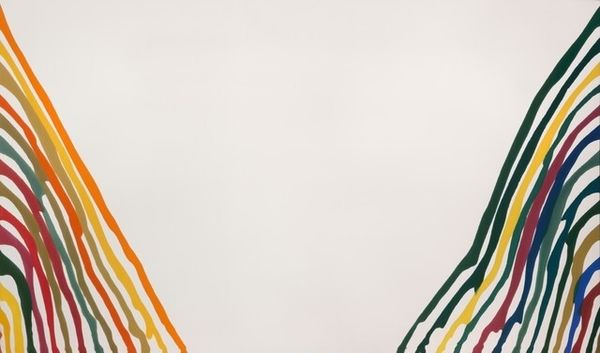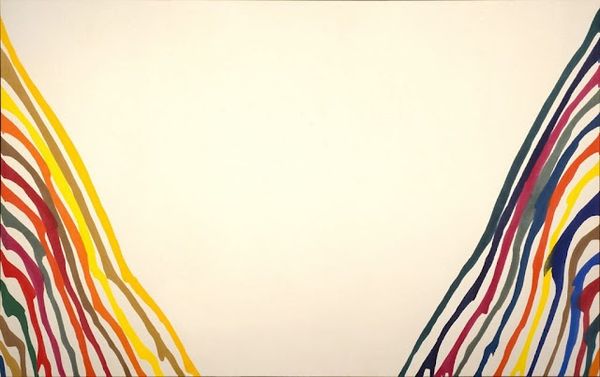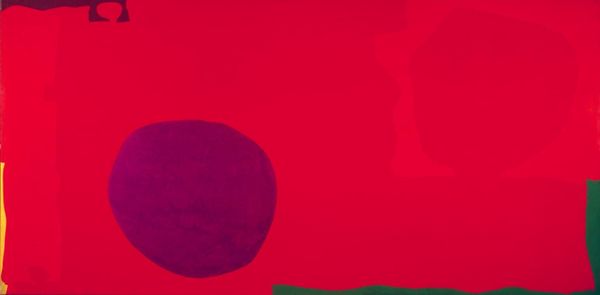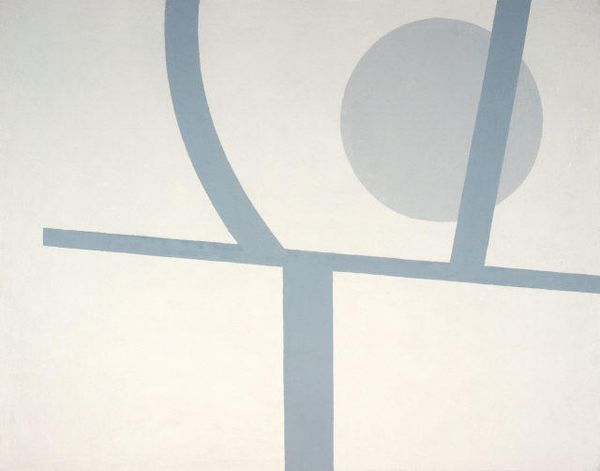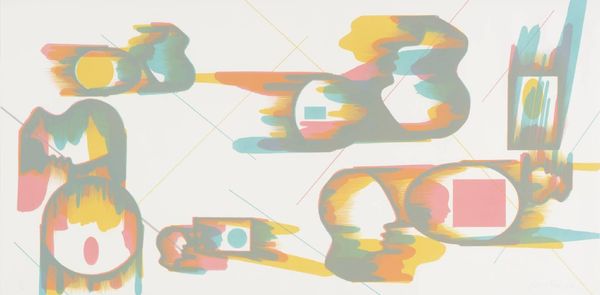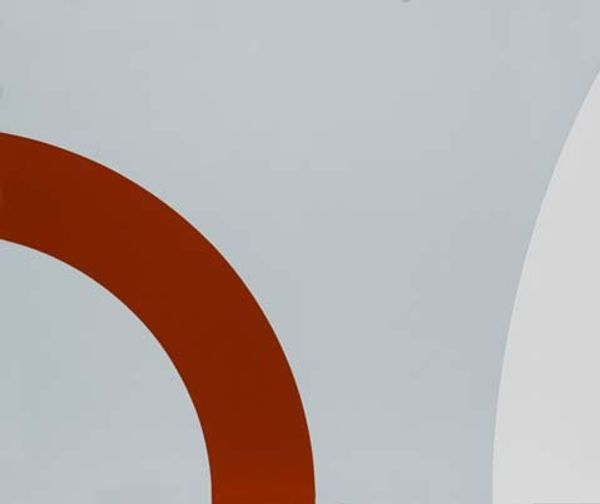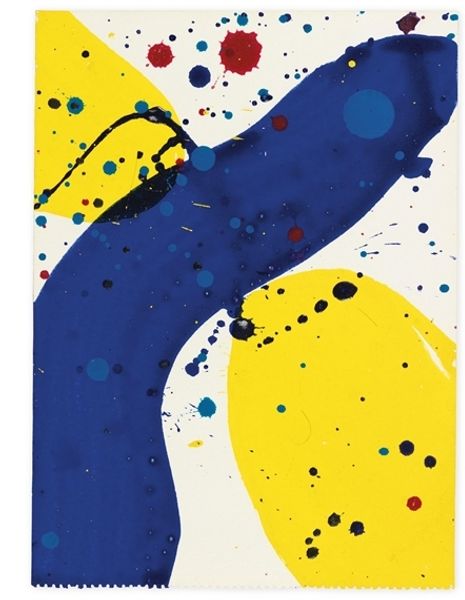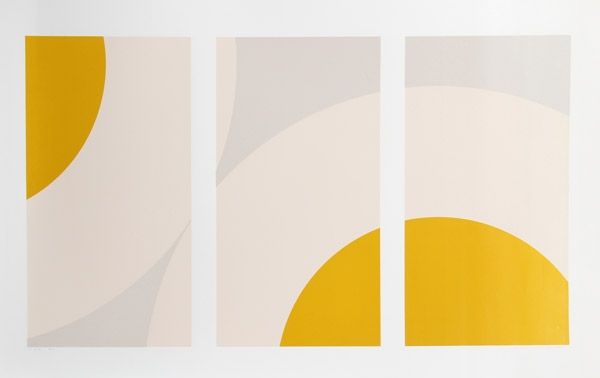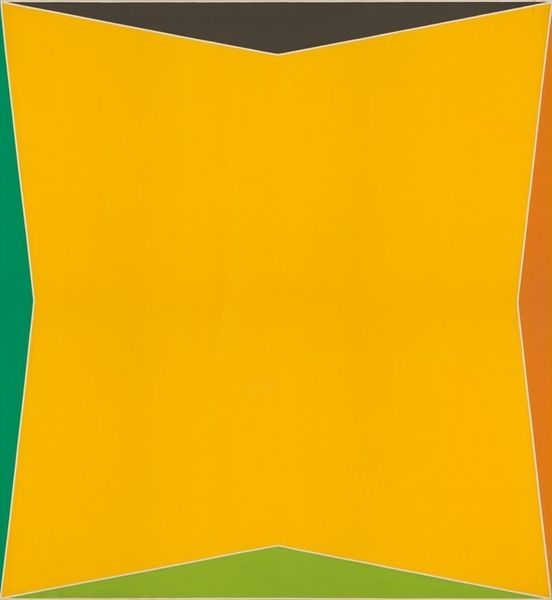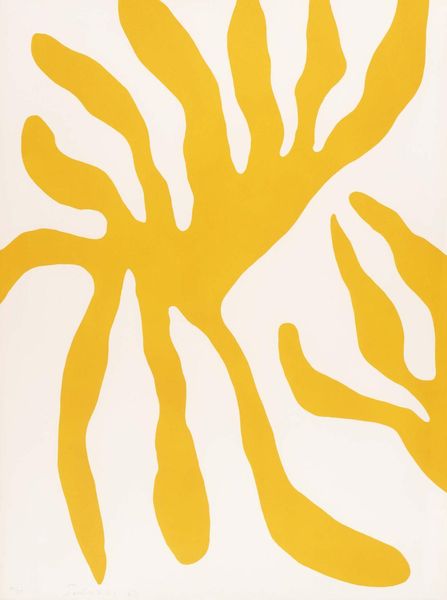
painting, acrylic-paint
#
abstract-expressionism
#
abstract expressionism
#
abstract painting
#
painting
#
pop art
#
acrylic-paint
#
figuration
#
acrylic on canvas
#
geometric
#
abstraction
#
abstract art
#
modernism
Copyright: Paul Feeley,Fair Use
Curator: Paul Feeley’s "Germanicus," from 1960, strikes me immediately. The pairing of gold and indigo presents an immediate dialogue. Editor: I agree. The deep blue really grounds the airy gold shapes. They almost seem to float, like stylized figures in a shallow space. What acrylic medium did he choose to convey a modern feel in abstraction? Curator: Well, I see something quite interesting in those repeating figures. Notice how they suggest a chain or a dance? Perhaps Feeley is delving into Jungian archetypes here, universal symbols embedded in our collective unconscious. The mirrored shapes elicit feelings of togetherness. The blue void feels infinite. Editor: Interesting. My take on those figures isn't so celebratory. To me, there's a sense of enforced conformity. Identical shapes lined up, denying individuality. The oppressive blue feels like a weight holding them down, reminding us perhaps of rigid social structures in the post-war period and commentary about a rise of American capitalism. Curator: It’s fascinating how we perceive this painting differently. But you know, isn't that the point of abstraction? The freedom for the viewer to project their own experiences and anxieties onto the work. Those simplified shapes really let viewers discover themselves. The color is warm, but feels sad and tragic as well. It makes you think what will endure over time. Editor: I can agree with that. The genius of Feeley’s piece lies in its openness to interpretation. It operates both as a celebration of unity and, possibly, a critique of homogeneity. Its beauty exists as its emotional complexity endures. Curator: Indeed, art often gives us a visual metaphor to consider life from another’s perspectives. Feeley provides this and it speaks to our moment, where many in our divided world would prefer a society unified by its collective history. Editor: It also allows us to imagine worlds in our futures that still have not been created.
Comments
No comments
Be the first to comment and join the conversation on the ultimate creative platform.
